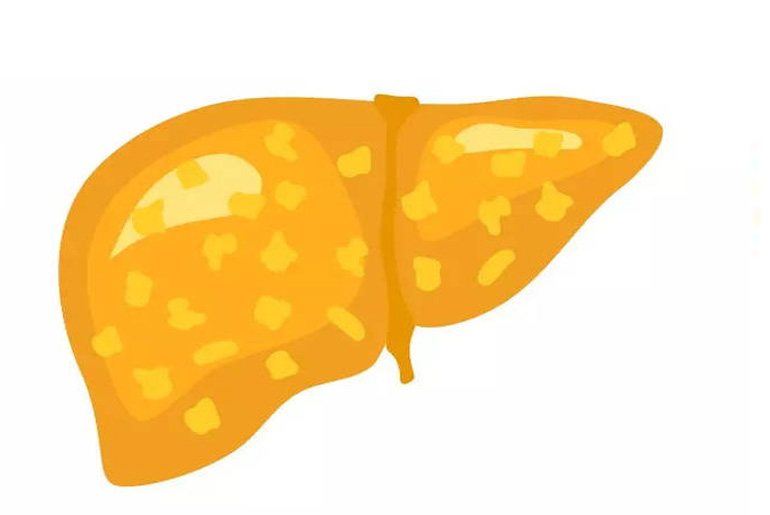Fatty liver disease is notably more prevalent among individuals who have diabetes or are obese, with studies indicating a 27% higher occurrence in these populations. Consequently, it is imperative for individuals with diabetes or obesity to prioritize their liver health. Health experts emphasize the importance of remaining vigilant and proactive in managing this condition, urging patients to take proactive measures to safeguard their liver health. By staying informed and adopting healthy lifestyle choices, individuals can mitigate the risks associated with fatty liver disease and promote overall well-being.
The prevalence of fatty liver disease is indeed escalating, with a significant number of individuals receiving diagnoses. This condition, also known as steatosis, occurs when an excessive amount of fat accumulates in the liver, constituting more than 5-10 percent of its total weight. As this surplus fat builds up, it can impair liver function and lead to various complications. The rising incidence of fatty liver underscores the importance of raising awareness about its causes, risk factors, and preventative measures to curb its progression and mitigate its impact on public health.
Understanding Non-Alcoholic Fatty Liver Disease:
Non-alcoholic fatty liver disease (NAFLD), a condition where excess fat builds up in the liver. Here’s a breakdown based on the information you provided:
Causes:
- Alcohol consumption
- Diabetes
- Obesity
- Sedentary lifestyle
- Genetics
- Drug use
Prevalence:
- NAFLD is common, especially among individuals with diabetes and obesity, with a prevalence of around 27% higher in these populations.
- It can occur at any age, including childhood, but it’s most prevalent in the 40–50 year age group.
- It’s often asymptomatic and is typically discovered incidentally during ultrasound examinations for other health issues.
Complications:
- Progressive fat accumulation can lead to liver cell damage, potentially resulting in liver cirrhosis and liver cancer over time.
- Many people underestimate the seriousness of fatty liver because they are unaware of its potential complications, leading them to ignore it as a routine issue.
Treatment:
- Medication may be prescribed to manage diabetes and control blood sugar levels.
Lifestyle changes are crucial, including regular exercise, a balanced diet, and weight management.
- Limiting alcohol consumption, avoiding smoking, and staying hydrated are also recommended.
- Following expert guidelines and improving overall quality of life can help manage the condition effectively.
Essential Steps to Prevent Fatty Liver Disease:
Raising awareness about the risks and complications of fatty liver is essential to encourage individuals to take proactive steps in managing their health.
- Avoid Alcohol or Sedentary Lifestyle: Both alcohol consumption and a sedentary lifestyle are risk factors for NAFLD. Limiting alcohol intake and engaging in regular physical activity can help reduce the accumulation of fat in the liver.
- Strict Control of Diabetes or High Cholesterol: Managing diabetes and high cholesterol levels is crucial for preventing complications associated with NAFLD. This may involve medication, dietary changes, and lifestyle modifications.
- Regular Exercise: Engaging in moderate-intensity exercise for 30 to 45 minutes most days of the week can improve insulin sensitivity, promote weight loss, and reduce liver fat accumulation.
- Maintain BMI around 23: Maintaining a healthy body weight, typically indicated by a Body Mass Index (BMI) around 23, can lower the risk of NAFLD. Weight loss, if necessary, can significantly improve liver health.
- Healthy Eating Habits: Avoiding meals rich in carbohydrates and fats and opting for a balanced, nutritious diet can help manage NAFLD. Focus on whole foods, fruits, vegetables, lean proteins, and healthy fats while limiting processed foods, sugary beverages, and high-fat meals.
By following these guidelines, individuals can take proactive steps to improve liver health and reduce the risk of complications associated with NAFLD. Regular monitoring and consultation with healthcare professionals are essential for personalized guidance and support.
Disclaimer:
The information contained in this article is for educational and informational purposes only and is not intended as a health advice. We would ask you to consult a qualified professional or medical expert to gain additional knowledge before you choose to consume any product or perform any exercise.








